

A characteristic feature of this family is the female's habit of carrying her egg-sac in her jaws and held in place beneath her body by backwards pressure from her palps. No other family carries their egg-sac in this manner. When the spiderlings are about to hatch the female spins a nursery tent around the egg-sac and stands guard outside it until the spiderlings disperse.
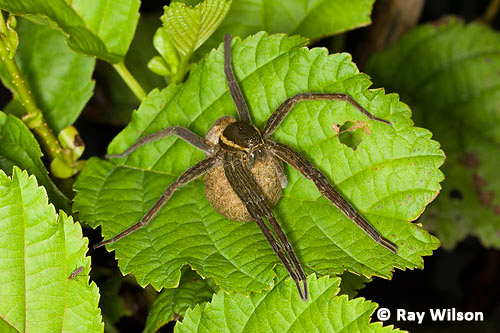
Of the 328 species found worldwide, only 3 occur in Northern Europe (Pisaura mirabilis, Dolomedes fimbriatus & D. plantarius) with D. plantarius by far the rarest of these. In Britian it is only found in 3 widely separated sites and is afforded the highest level of protection available for an invertebrate.
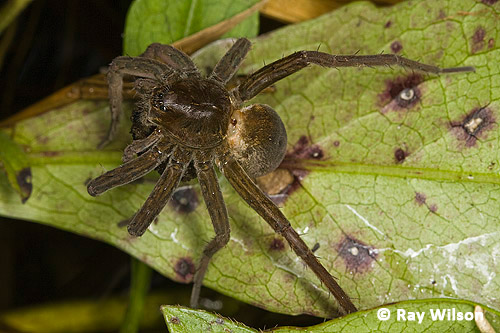
Due to the presence of hydrophobic hairs all over their body, Dolomedes have the ability to walk on water and predominantly prey on aquatic life and insects trapped on the water surface. Some species have even been observed capturing small fish. When startled they will often seek sanctuary by diving under the surface of the water. There are about 100 species of Dolomedes worldwide.
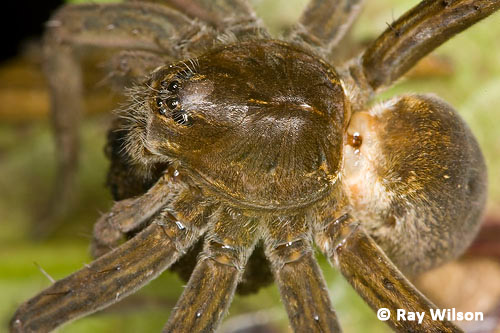
Members of the Pisauridae can be differentiated from the Lycosidae, with whom they share many superficial characteristics, by their having all eight eyes of fairly equal size (Lycosids have an enlarged front pair).
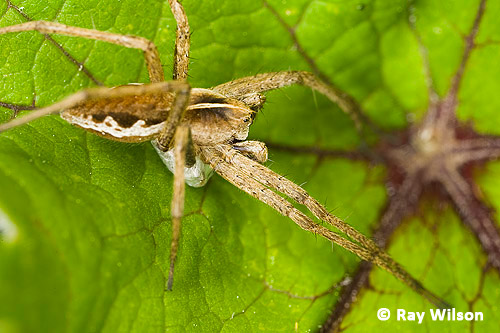
Pisaura mirabilis is a very common species found on low vegetation. It builds larger and more elaborate nursery tents for its young than Dolomedes.
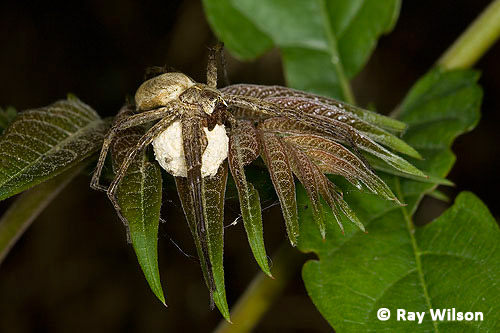
Some males of Pisaura mirabilis have an unusual mating strategy. Common with many other species, the male entices the female to mate with a present of food. However, many males play dead while holding the present in his jaws. When the female takes hold of the food parcel, the male springs back into life and adopts the copulatory position. Males that utilise this behaviour more than double their chances of successfully mating.
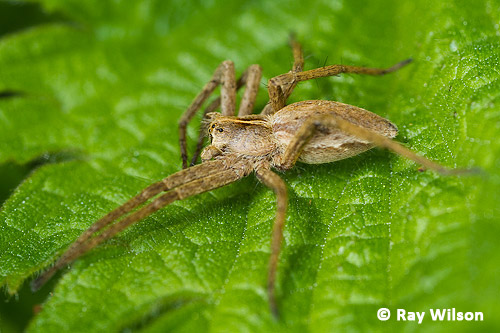
Ray Wilson owns the copyright of all images on this site.
They may not be used or copied in any form without prior written permission.
raywilsonphotography@googlemail.com